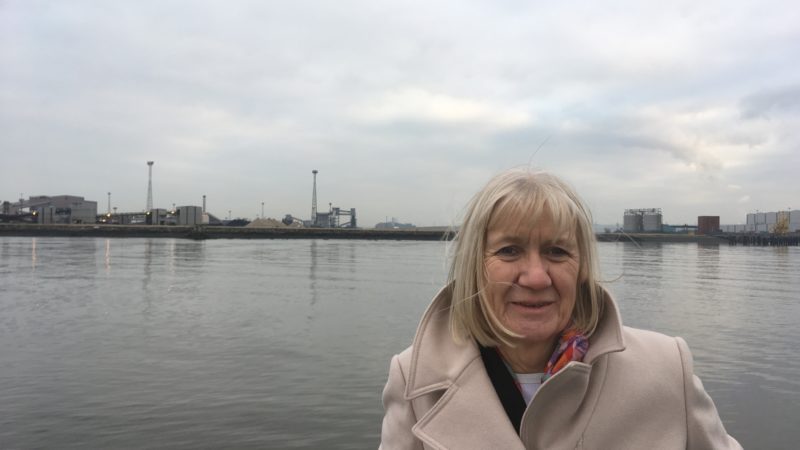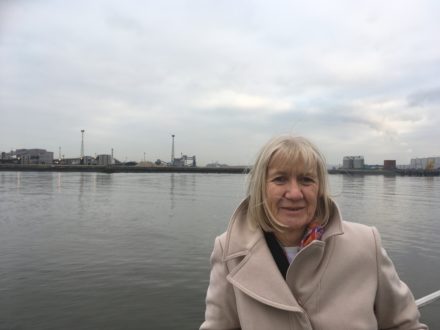

The election clock is ticking. After May’s shock announcement, Labour now has just six weeks to present its alternative vision for the country, three years earlier than expected. This is clearly a significant task. Yet away from the green benches and into the country there is already a Labour path to success. Just as it has in the past, local government is embracing new ideas and innovation, transforming communities with bold agendas, even in the face of extreme and unnecessary cuts. Nowhere is this more evident than with progress on clean energy and the environment.
The government can shout all it likes about its claim to “leave our environment in a better state than we found it”, but whilst it stalled on key policy and cut crucial support, Labour councils have been getting on with the job of transforming our towns and cities for the 21st century.
Enfield council’s heat network scheme will use waste energy to cut fuel bills; Leeds has its ambitious “hydrogen city plan” and City Hall is taking real steps to address London’s toxic air, to name but a few. Each of these projects recognises the need to act, but does so with social justice at its heart. Every action shows just what Labour can do in power.
Our metro mayor candidates are set to take this one step further. Armed with new powers and reach, each candidate’s manifesto sets out a clear, sustainable vision for their community. As Steve Rotheram writes: “Being green is not an optional extra. In the 21st century it is a fundamental necessity”. As each mayoral hopeful makes clear, a bold environmental agenda is core to the progressive offer they are articulating. Our general election manifesto needs to do the same.
Reading through each manifesto, what is most striking is the sheer level of ambition: Sion Simon calls for the West Midlands to be the “green capital of England”, switching to 100 per cent clean energy by 2050, a pledge echoed by Lesley Mansell in the West of England.
Steve Rotheram goes even further, calling for the Liverpool city region to be zero-carbon by 2040, whilst core to Andy Burnham’s Green City pitch is a new “accelerated ambition”. For each, ambition is not only necessary, it is part of regional pride. These areas have led before – on industry, on public parks, on social justice, and they will again on clean energy.
Equally fundamental is combining environmental policy with the potential for economic growth. By embracing clean energy early enough, city-regions can establish themselves as low-carbon hubs, bringing investment, skilled jobs and new businesses to the area. To this end is Rotheram’s pledge for a green energy investment fund in Liverpool, supporting innovation and entrepreneurship, and mirrors similar pledges elsewhere. Perhaps the most impressive plan is from the Tees Valley: Sue Jeffrey, above, is passionate about transforming its carbon-intensive industry via CCS and reusing waste, to secure the clean energy jobs that are beginning to dominate.
It’s not just on the green economy where Labour’s candidates are leading the way, with equally bold green policies across the likes of housing and transport, from integrated travel cards for public transport to “green” council homes. Rather than sustainability and environmental impact bolted onto a manifesto – as so often has happened in the past – they are integrated as core values.
Rotheram’s pledge to consider sustainability in the procurement process may not win headlines, but it is with practical, considered policies like these that significant changes can be made. The same can be said for the common focus on spatial plans: considering transport, housing and jobs together makes embedding sustainability easier. Doing the same for energy and homes makes it easier to tackle the likes of fuel poverty. This big-picture, integrated thinking is essential for sustainable communities, yet often ignored.
There is, as with any plan, still room for improvement. Questions might be asked how Simon’s support for a second runway at Birmingham airport matches up with his “Green capital” aspirations. There’s also room for further ambition on air quality and the likes of retrofit and energy. Yet fundamentally, it is inspiring to see the environment at the heart of each manifesto, neither a nicety nor an afterthought, but key to achieving social justice and economic security.
This spring, SERA will be fighting for a Labour government that defends our environment, leads on climate change and has environmental and social justice at its heart. These manifestos, and the work of Labour in local government, show how we can lead, and win with a positive, green vision that tackles social injustice. Just as it has done before, local government can help provide new ideas, and proof of what a difference Labour in power can make. Our general election offer must be just as bold.
Adam Dyster is national organiser for SERA, Labour’s Environment Campaign. To find out more about SERA, or become a member, visit www.sera.org.uk




More from LabourList
‘If Labour is serious about upskilling Britain, it must mobilise local businesses’
Stella Tsantekidou column: ‘What are we to make of the Labour Together scandal?’
‘Unitarisation risks weakening local democracy unless communities are put in the driving seat’